If you’ve been following our Fantasia 2015 coverage, then you know that we saw the sci-fi noir time travel movie, Synchronicity, and that we absolutely loved it. Check out our review.
In addition to screening the movie, we also had the distinct pleasure to chat with the movie’s writer/director, Jacob Gentry, and star, Chad McKnight. It was actually an intimate setting, and these two gents were so candid about their movie and what went into it. All went well, until the end, then the debate about their favorite time travel movie ensued. Read the interview below and see how it all unfolds.
Oh, and see Synchronicity!
First of all, what a great movie!
Jacob Gentry: Thank you. I’m glad.
Can you describe for our audience the premise of Synchronicity?
JG: Yeah, it’s about a physicist who built a machine that is able to open a traversable wormhole in the space-time continuum. He gets clues from that machine while simultaneously a corporate executive, played by Michael Ironside, wants to get his hands on that machine. And a woman is involved, and appears in his life at the same time as he turns the machine on, and he gets caught up in what he believes to be almost a femme fatale-like detective story, only to end up having to resort to traveling through the wormhole himself and discover that maybe everything he saw wasn’t as what it seems, maybe it was less of that. So, it has sci-fi, romance, noir, action, adventure, thrills, spills, chills [laughs].
How was the audience’s reaction last night at the World Premiere?
JG: It was fantastic, I thought.
Chad McKnight: Yeah! A lot of them stayed for the Q&A, which means they weren’t bored and dying to get out of there. That was reassuring.
JG: It’s also the most people who have ever seen the movie. Very few people, including some of the cast and crew hadn’t seen the film yet. So, it was really nice to see what any kind of audience’s reaction would be to it. It was really fun to have them laughing at some of the humor, and then being able to tell that there was a lot of leaning forward, and quietly leaning forward during some of the more intriguing parts of the movie. That was really cool.
How did the project get underway; what was its inception?
JG: The inception was just this time-travel idea that I was working on with my friend Alex Orr. We were initially wanting to write a movie set at the Large Hadron Collider in Cern, that we could go to Cern and shoot it even if we didn’t get permission. Almost like a science-fiction Mumblecore movie, or something like that. And then it just went from there and over the next couple of years developed into something very different.
I appreciate the fact that while it could have gone the violent route, it stuck to betrayal and deception and love. Was violence ever a considered option?
JG: I’ll tell you, I was thinking about this, and I think what was interesting was in and around that time, with a lot of the same crew, we made a series of movies for MTV called My Super Psycho Sweet 16, and the third one we were working on has such colossal levels of violence, just where the gags and the gore and everything, it’s almost like when we were working on that and this around the same time that we were taking care of that part of what’s exciting in movies and can we push this story forward more with the mental concepts and the intrigue being more in the head as opposed to physical action. Almost so much that there were things that were a little bit violent that we just didn’t want to shoot. It just takes on a different component I think.
At its heart, Synchronicity is a love story rooted in some jealousy, what inspired the story?
JG: [To Jim] You can speak to this, but for me I think it was… when you have romantic feelings in your life sometimes a lot of the other aspects of your life, especially as men, get numbed a little bit.
CM: Priorities shift when you know logically that you’ve been here before, why are you letting this happen again? And again? You think it’s going to be different; the pathology doesn’t change.
JG: I’m fascinated by jealousy, because for me it’s the one emotion that, even when I understand it in the moment, even when I know I can actually see myself being ridiculous, I can’t help it. I just can’t turn it off. It’s the only emotion for me that my intellect can understand it and be completely conscious of it but I have zero ability to turn it off.
And his character is a workaholic who is obsessed with his work and probably doesn’t have a social life, and so he gets caught up in this whole thing and he’s so distracted by these romantic feelings that he’s unused to that he forgets logic and common sense. Those are usually his tools; that’s what makes him, that’s what makes him a superhero as far as that stuff is concerned. It’s like his kryptonite is these feelings that he doesn’t know how to [handle] and he tries to solve them with math. You can’t fix those things with math.
Essentially you played two characters. How did you prepare to be jealous of yourself?
CM: That’s a good one. That probably was just in those moments acting, bad acting actor in your head going, “I wish I could have done that one differently.” Or thinking about the last scene because we probably did play a lot of it knowing that you had to do the next one, next up, and keeping those emotions intact and probably going, “God, I should have done this differently, and this differently” in the last scene and then you’re in the current scene going, “maybe that worked.” I don’t know.
JG: I think that’s a good reading, being jealous of yourself; that’s a huge part of this thing. I think that’s like we get to see a literal version of what we all feel, which is like rose-colored glasses when you look back on certain relationships that you’ve been in; you only remember the good parts, you only remember “oh, man, I wish I could be back in that thing” and you forget about all the things that maybe caused the…
CM: You revise it. The revisionist history portion of it and then you think you can do it again and you still do exactly the same thing, like we were saying. OK, got it figured out now. ‘Cause you probably were only telling yourself the good points; you weren’t paying attention to the work on yourself or how to change and shift the things that actually is your fault or your responsibility, if there is a fault in those moments. It’s all high-concept with that stuff and talking about it, but honestly, when you’re in it for a 14-day shoot and you’re just doing it, you’d like to think that you’ve intellectualized that but in those moments, whether they show or don’t, that comes with him editing it later. I wish I could be that present and smart at all times, but really I’m just trying to remember lines.
JG: Well, that’s my favorite kind of science fiction, when you can deal with these real world, really human problems… where the problems of the main character and the concept aren’t mutually exclusive.
The noir aspect is great. Was the aesthetic hard to achieve?
JG: Hard? Well, it’s always a challenge on a low budget to do any kind of really specific design thing, but I had a really amazing cinematographer and a really amazing production designer and really good producers, and they were able to help us realize that.
Did you film on stages or on location?
JG: There’s a little bit of both. The idea was to mix the practical and the artificial and to hopefully bridge them together to where they’re indiscernible. We were really dogmatic about a lot of the photography; I almost set up certain rules and certain color palette rules. Like, the only thing that’s red in the movie is the dahlia. So there wasn’t allowed to be any red in the movie, and there wasn’t allowed to be any green in the movie, except for the dahlia. So, all the costumes had to be muted, earthtones or grays or blues or whatever.
Were those scenes filmed simultaneously?
CM: It was all mixed up. A lot of it was all in one shot, where you would do a oner, where you’re in camera, running around changing clothes, and then come back in with that emotional likeness. Those were fun because the physicality takes you out of the headiness, so you’re coming over there and you’re either gonna land on your mark and be in focus and shift enough. Yeah, but it was not easy to do the mathematics. Some of the scenes aren’t even in the movie.
What is your favorite film involving time travel?
CM: Well, you already said earlier, so I’m stealing yours, you go first.
JG: What did I say was my favorite?
CM: Well, Back to the Future.
JG: Well, I said that part. I want to be clear because I don’t want anyone being under the understanding that Back to the Future II is my favorite time travel movie, because it’s not by any stretch. There’s about a 10-minute part of Back to the Future II that’s my favorite time travel movie, and that’s when Marty revisits the events that we saw in the first movie, and that was kind of the major inspiration for this one. I very clearly think that the first one is difinitively better. The second one has brilliant parts and really…
CM: I knew you’d fall back. I was just saying the whole franchise; I like Back to the Future because the age we were at that time when it came out, and the fun…
JG: I think one of the best time travel movies is Groundhog Day.
CM: Damn it! I don’t know if that’s time travel.
JG: It’s totally a time travel movie. Absolutely.
CM: That’s my favorite too…
Rock Hard \m/


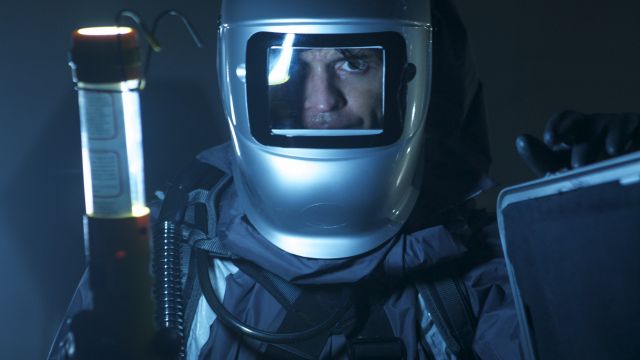
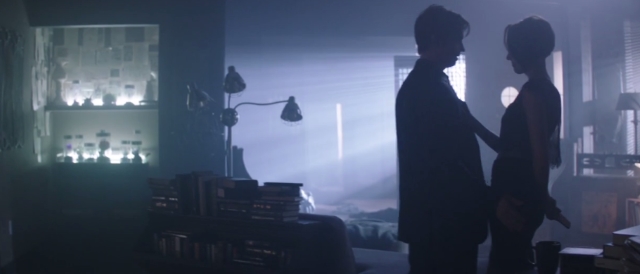
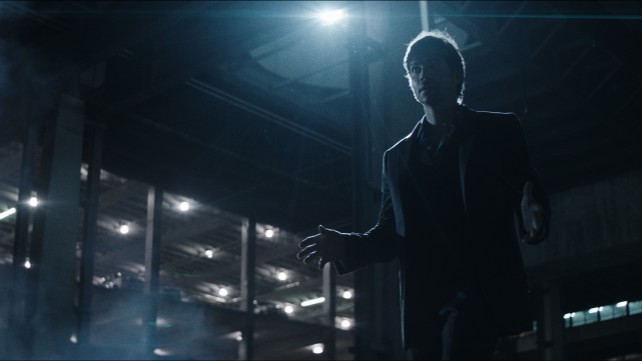
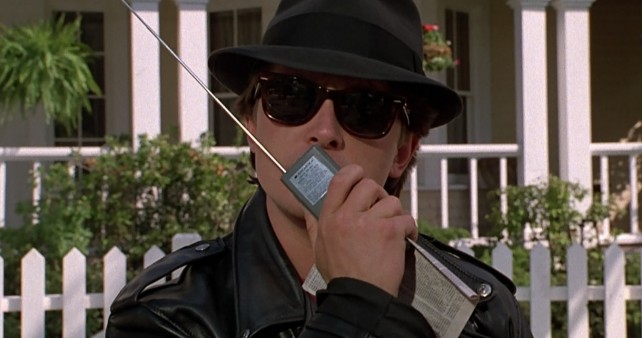
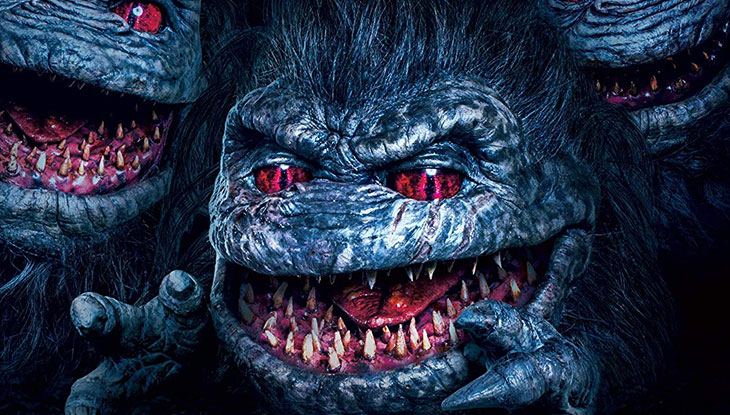


Stay Connected